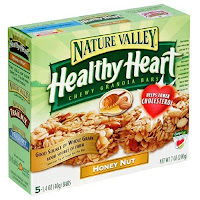The sterol question continues to pop up.
Sterols are an ingredient widely added by food manufacturers that allows a "heart healthy" claim, since sterols have been shown to reduce LDL cholesterol (at least transiently). HOWEVER, sterols have also been implicated in possibly increasing risk for heart disease. After all, people with the genetic condition called sitosterol emia absorb sterols into the blood and develop coronary heart disease in their teens and twenties. Those of us without sitosterolemia who increase sterol intake with sterol-enriched foods increase blood levels of sterols several-fold. Is this healthy, or does it contribute to coronary plaque as it does in people with sitosterolemia?
Below, I've reprinted a previous Heart Scan Blog post on sterols.
Sterols should be outlawed
While sterols occur naturally in small quantities in food (nuts, vegetables, oils), food manufacturers are adding them to processed foods in order to earn a "heart healthy" claim.
The FDA approved a cholesterol-reducing indication for sterols , the American Heart Association recommends 200 mg per day as part of its Therapeutic Lifestyle Change diet, and WebMD gushes about the LDL-reducing benefits of sterols added to foods.
Sterols--the same substance that, when absorbed to high levels into the blood in a genetic disorder called "sitosterol emia"--causes extravagant atherosclerosis in young people .
The case against sterols, studies documenting its coronary disease- and valve disease-promoting effects, is building:
Higher blood levels of sterols increase cardiovascular events:
Plasma sitosterol elevations are associated with an increased incidence of coronary events in men: results of a nested case-control analysis of the Prospective Cardiovascular Münster (PROCAM) study.
Sterols can be recovered from diseased aortic valves:
Accumulation of cholesterol precursors and plant sterols in human stenotic aortic valves.
Sterols are incorporated into carotid atherosclerotic plaque:
Plant sterols in serum and in atherosclerotic plaques of patients undergoing carotid endarterectomy.
Though the data are mixed:
Moderately elevated plant sterol levels are associated with reduced cardiovascular risk--the LASA study.
No association between plasma levels of plant sterols and atherosclerosis in mice and men.
The food industry has vigorously pursued the sterol-as-heart-healthy strategy, based on studies conclusively demonstrating LDL-reducing effects. But do sterols that gain entry into the blood increase atherosclerosis regardless of LDL reduction? That's the huge unanswered question.
Despite the uncertainties, the list of sterol-supplemented foods is expanding rapidly:

Each Nature Valley Healthy Heart Bar contains 400 mg sterols.

HeartWise orange juice contains 1000 mg sterols per 8 oz serving.

Promise SuperShots contains 400 mg sterols per container.

Corozonas has an entire line of chips that contain added sterols, 400 mg per 1 oz serving.

MonaVie Acai juice, "Pulse," contains 400 mg sterols per 2 oz serving.

Kardea olive oil has 500 mg sterols per 14 gram serving.
WebMD has a table that they say can help you choose "foods" that are sterol-rich.
In my view, sterols should not have been approved without more extensive safety data. Just as Vioxx's potential for increasing heart attack did not become apparent until after FDA approval and widespread use, I fear the same may be ahead for sterols: dissemination throughout the processed food supply, people using large, unnatural quantities from multiple products, eventually . . . increased heart attacks, strokes, aortic valve disease.
Until there is clarification on this issue, I would urge everyone to avoid sterol-added "heart healthy" products .
Some more info on sterols in a previous Heart Scan Blog post: Are sterols the new trans fat? .